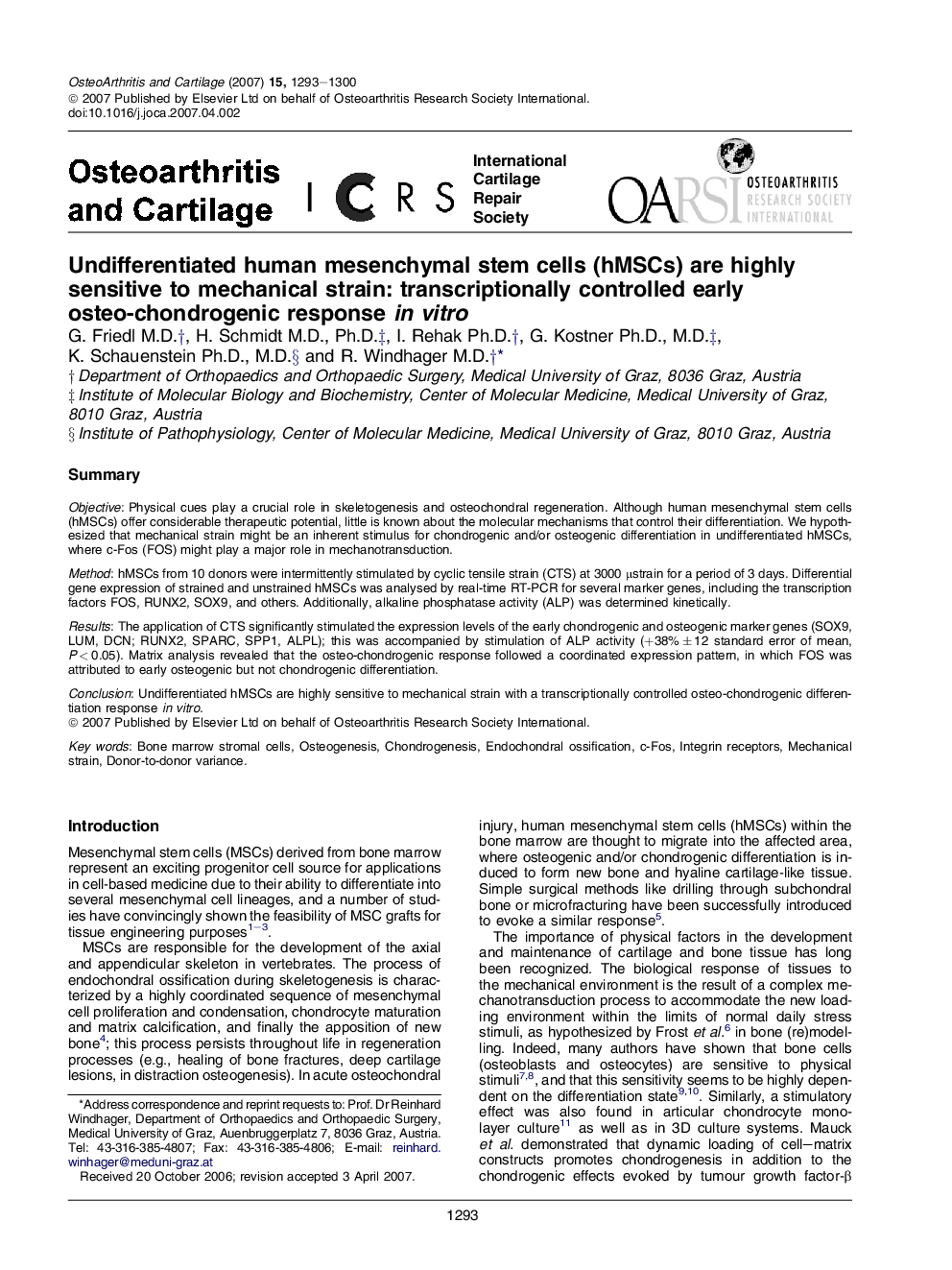| Article ID | Journal | Published Year | Pages | File Type |
|---|---|---|---|---|
| 3381244 | Osteoarthritis and Cartilage | 2007 | 8 Pages |
SummaryObjectivePhysical cues play a crucial role in skeletogenesis and osteochondral regeneration. Although human mesenchymal stem cells (hMSCs) offer considerable therapeutic potential, little is known about the molecular mechanisms that control their differentiation. We hypothesized that mechanical strain might be an inherent stimulus for chondrogenic and/or osteogenic differentiation in undifferentiated hMSCs, where c-Fos (FOS) might play a major role in mechanotransduction.MethodhMSCs from 10 donors were intermittently stimulated by cyclic tensile strain (CTS) at 3000 μstrain for a period of 3 days. Differential gene expression of strained and unstrained hMSCs was analysed by real-time RT-PCR for several marker genes, including the transcription factors FOS, RUNX2, SOX9, and others. Additionally, alkaline phosphatase activity (ALP) was determined kinetically.ResultsThe application of CTS significantly stimulated the expression levels of the early chondrogenic and osteogenic marker genes (SOX9, LUM, DCN; RUNX2, SPARC, SPP1, ALPL); this was accompanied by stimulation of ALP activity (+38% ± 12 standard error of mean, P < 0.05). Matrix analysis revealed that the osteo-chondrogenic response followed a coordinated expression pattern, in which FOS was attributed to early osteogenic but not chondrogenic differentiation.ConclusionUndifferentiated hMSCs are highly sensitive to mechanical strain with a transcriptionally controlled osteo-chondrogenic differentiation response in vitro.
